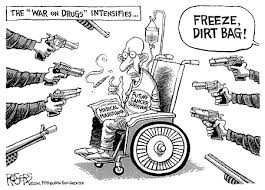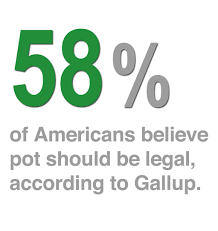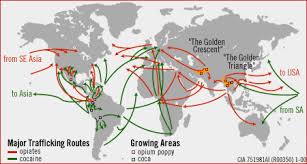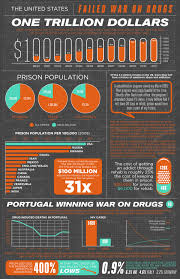http://www.washingtonpost.com/news/wonkblog/wp/2015/05/05/global-drug-policy-isnt-working-these-100-organizations-want-that-to-change/









Stop The Drug War
hxxp://stopthedrugwar.org/
15 papers looking at how the drug world regime will have to change to keep up with rapid changes in domestic laws and shifting public opinion
hxxp://www.brookings.edu/research/papers/2015/04/global-drug-policy
Numbers Tell of Failure in Drug War
hxxp://www.nytimes.com/2012/07/04/business/in-rethinking-the-war-on-drugs-start-with-the-numbers.html?_r=1
By Christopher Ingraham May 5
Last week, a Brookings Institution discussion on international drug policy began with the premise
that "no policy has failed as badly in the past 30 years as drug policy," according to moderator
and former Mexican ambassador to the
U.S. Arturo Sarakhan in his opening statement. But now a group of nonprofit organizations are
working to change
that.
In 2016, the U.N. General Assembly will hold a special session (UNGASS) on drugs which will set the
tone for global drug policy for the foreseeable future. The last special session on drugs was held
in 1998, and tasked U.N. member nations with the unrealistic goal of achieving a "drugfree world"
by 2008. If you look at, say, Washington or Colorado the last few years, you know things have
turned in a very different direction.
But it's not the the U.S., where states are legalizing marijuana. Latin American countries are
loosening restrictions on drug use and Portugal has decriminalized the use of drugs completely, to
name just a few examples. Many of the harms associated with drug use the violence, the criminal
activity, the loss of life have been shown to be direct consequences of the way we wage the drug
war, rather than of drug use itself. More countries are beginning to acknowledge this troubled
history, but the U.N. treaties governing drug policy haven't been significantly updated
since the 1960s.
In order to assess the state of international drug policy, Brookings introduced a series of 15
papers last week looking at how the global drug control regime would need to change to keep up with
rapid changes in domestic laws and shifting public opinion. Advocates of overhauling drug laws hope
that the 2016 UNGASS will usher in a series of changes to international drug treaties to make them
more amenable to countries and regions that wish to implement changes to their drug laws.
To that end, a consortium of over 100 human rights and drug policy organizations today are
releasing an open letter calling on the U.N. to respect changing drug policies within member
countries, and to prioritize human rights over punitive law enforcement in its approach to drug
laws. "Existing US and global drug control policies that heavily emphasize criminalization of drug
use, possession, production and distribution are inconsistent with international human rights
standards and have contributed to serious human rights violations," the groups write.
Signatories to the letter include the American Civil Liberties Union, Human Rights Watch, NORML,
Law
Enforcement Against Prohibition, and the International Drug Policy Consortium. The three existing
international
drug treaties commit member states to "punish and even criminalize activity related to recreational
marijuana" and other drugs, according to Brookings' Wells Bennet. This is in direct conflict with
policies like statelevel marijuana legalization efforts in the U.S., and the federal government's
stated policy of allowing them to operate as long as they abide by certain guidelines.
The signatories' letter boils down to a fairly simple request: that "human rights principles, which
lie at the core of the United Nations charter, should take priority over provisions of the drug
conventions," they write.
This would represent a marked departure from existing policies at the U.N., which is currently led
by the U.N. Office on Drugs and Crime. There's a reason it's called the "office on drugs and crime"
and not the "office on drugs and health" or "office on drugs and human rights:" the office is
focused primarily on law enforcement and explicitly characterizes drug use as a "menace" to
international society.
If the U.N. takes a different attitude toward drug policy, it won't be the first time. The U.N.'s
own Office of the High Commissioner for Human Rights issued a report in 2012 finding that
"excessively punitive approaches to drug control have resulted in countless human rights
violations, including the right to health."
But the Office on Drugs and Crime, tasked with overseeing international drug control agreements, is
one of the staunchest defenders of the international drug control regime. The office is headed by
Yury Fedotov, a Russian who has condemned marijuana legalization efforts in the U.S. and elsewhere.
So finding common ground at the 2016 UNGASS may be difficult. That's why the human rights and drug
policy organizations are releasing their letter today, as various U.N. committees lay the
groundwork for the special session
next year.
The risk for advocates of strict drug control measures, he says, is that if the international
treaties aren't significantly
reformed, countries may simply decide to bow out of them completely. There is, in fact, a mechanism
within the treaties for countries to do precisely that: they can simply leave the treaties and then
rejoin with "reservations" that allow them to ignore whichever portions of the treaties they
object to. Bolivia has already done so, citing its objection to the ban on cocaleaf chewing by
indigenous people.
The letter calls on governments to repeal laws that criminalize the use of various drugs, but stops
short of
advocating for full legalization, of marijuana or anything else. For Maria MacFarland, codirector
of the U.S.
program at Human Rights Watch, decriminalization is a human rights issue.
"Criminalization is inconsistent with human rights principles, and with basic principles of
autonomy that underlie our rights," she said in an interview. "We realize that people who use
drugs do harm other people sometimes." Think of drunk drivers, for instance. But as with alcohol,
"the solution is to have laws that criminalize harmful conduct
not just the use itself," she said.
The signatories' requests are congruent with many of the findings of the 15 Brookings papers
released last week. Among other things, the papers recommend a law enforcement focus on violent
criminals, rather than drug users? comprehensive economic development initiatives to help farmers
in drugproducing regions transition away from drug crops? and an emphasis on public healthbased
approaches to drug use, like needle exchange programs.
Overall, Brookings scholars Vanda FelbabBrown and Harold Trinkunas write, "the goal of UNGASS 2016
should be to inject realism into the global discussion of drug policy objectives, instead of once
again setting an unattainable goal of a drugfree world." While political consensus on these issues
may be difficult to obtain within the U.N., it's clear that the research and NGO communities are
arriving at a consensus that the current international drug control
regime is impractical.